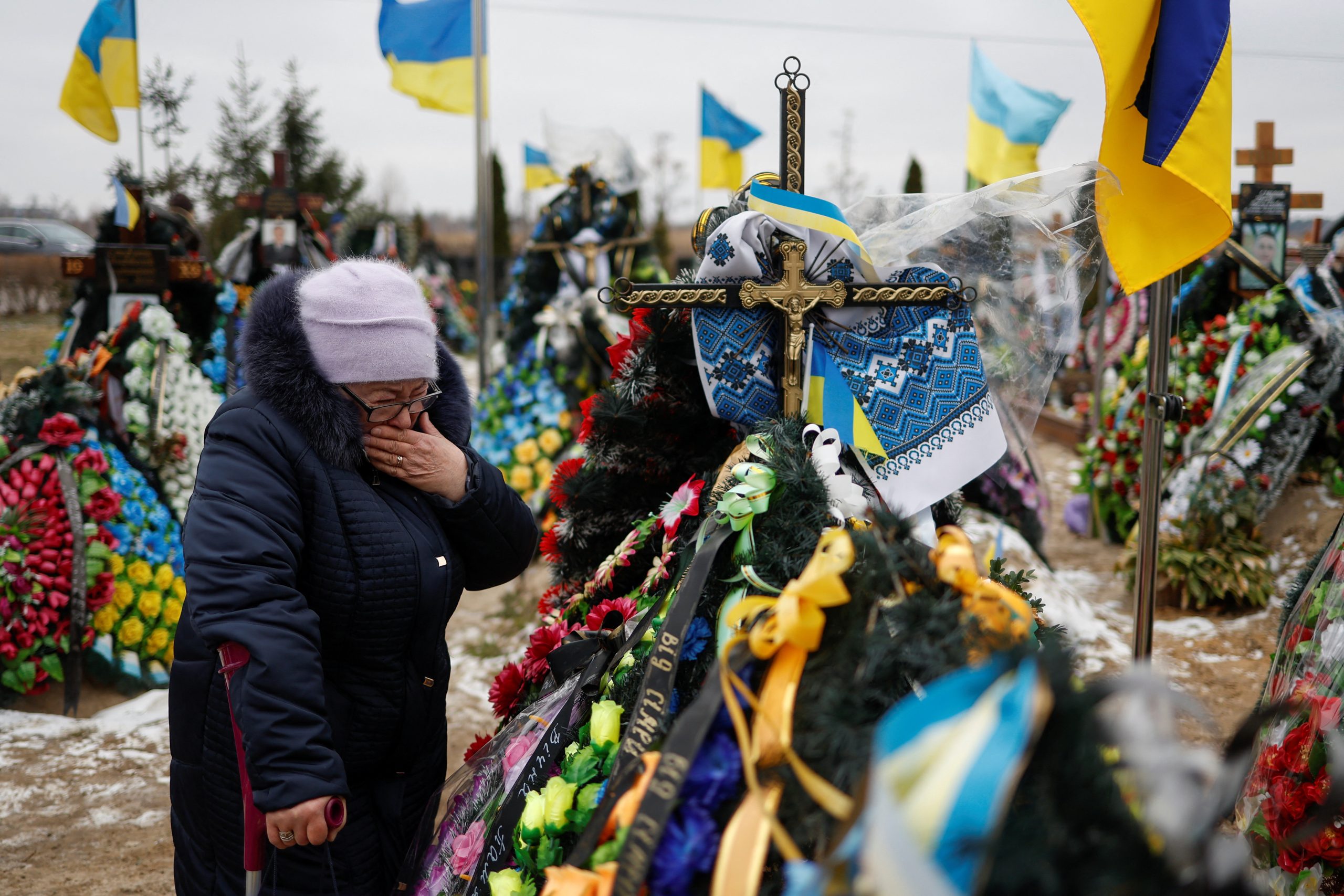
Chris Lange, FISM News
[elfsight_social_share_buttons id=”1″]
Russia’s former president and current confidante of President Vladimir Putin said on Monday that the West’s continued supply of weapons to Kyiv could result in a nuclear war, the latest among several similar threats made recently by the outspoken chair of the Kremlin’s powerful security council.
FISM’s Lauren C. Moye reported on Saturday that military analysts have suggested that Medvedev’s apocalyptic rhetoric is a diversion tactic to draw attention away from Russia’s military failures, though it is undoubtedly also meant to discourage additional arms supplies to Ukraine.
“Of course, the pumping in of weapons can continue…and prevent any possibility of reviving negotiations,” Medvedev said, according to a Reuters report.
“Our enemies are doing just that, not wanting to understand that their goals will certainly lead to a total fiasco. Loss for everyone. A collapse. Apocalypse. Where you forget for centuries about your former life, until the rubble ceases to emit radiation,” he continued.
The Kremlin has increasingly sought to cast Russia as a victim of Western aggression that threatens its very existence and the survival of the Russian people.
French Foreign Minister Catherine Colonna, who spoke to reporters on the sidelines of the United Nations (U.N.) Human Rights Council summit that kicked off in Geneva this morning, dismissed Medvedev’s comments as “inflammatory rhetoric.”
“Mr. Medvedev, alas, has long accustomed us to irresponsible, outrageous statements that in no way reflect reality,” she said. “This is inflammatory rhetoric that we would gladly do without.”
MARIUPOL BACK IN SPOTLIGHT
The British Defense Ministry (BDM) said in its daily war bulletin Monday that pro-Russian officials have reported at least 14 explosions around the Russian-occupied city of Mariupol in Ukraine’s south over the last six days. An airport ammunition cache, two fuel depots, and a Russian military base were among the sites that experienced the blasts.
Damage reports were not available at the time of this reporting. The BDM posited that the “unexplained explosions” have almost certainly sent shockwaves through Moscow, given that they occurred in areas the Kremlin likely believed to be beyond the range of Ukraine’s striking distance.
The U.S. recently included longer-range missiles in one of the multiple weapons packages given to Ukraine thus far in the conflict.
Russia declared that it “liberated” Mariupol in April following a merciless military campaign that saw the once picturesque and vibrant port city reduced to a wasteland. The battle for Mariupol also exposed the shocking brutality of Russian forces, who allegedly bombed a maternity hospital and a theater used to shelter women and children and left behind thousands of mass graves and evidence of summary executions and torture of Ukrainian civilians. It is estimated that at least 20,000 Ukrainians were killed in Mariupol.
“Mariupol is important to Russia because it is the largest city Russia captured in 2022 that it still controls, and sits on a key logistics route,” the British intelligence agency said.
RUSSIA SENDS TOP OFFICIAL TO GENEVA SUMMIT
Evidence of Russian war crimes against Ukraine discovered in Mariupol and elsewhere are among the key topics that will be discussed at the U.N. Human Rights Council meeting in Geneva, Switzerland that began Monday morning and will continue through April 4.
U.N. human rights chief Volker Turk warned the 47-member council that human rights gains are being reversed in parts of the world, citing Russia’s war in Ukraine as an example of oppression.
U.N. Secretary-General Antonio Guterres said separately that the war has resulted in “massive” human rights violations.
The Associated Press reported that member states, including the U.S. and Ukraine, will seek an extension of a U.N. probe into alleged Russian war crimes against Ukraine.
“We believe that it should be both a technical extension of the mandate but also substantially strengthen the text,” Yevheniia Filipenko, Permanent Representative of Ukraine to the U.N. Office in Geneva, told reporters on Friday.
Russia withdrew its membership from the council last year just as the General Assembly was on the cusp of revoking it. The Kremlin has selected Deputy Foreign Minister Sergei Ryabkov to travel to Geneva on Thursday to represent its interests at the summit, per ABC News. U.S. Secretary of State Antony Blinken is expected to deliver a speech to the assembly via video message on the same day.
CHINA’S VIOLATIONS AGAINST UYGHURS
China, a member of the council that voted against the Russian war crimes probe, will likely face fresh scrutiny over its alleged human rights violations against Muslim Uyghurs in its country.
Beijing, which previously voted against the Russian war crimes probe mandate, is reportedly poised to supply Moscow with lethal aid — a potential move that Washington and its NATO allies have been frantically trying to subvert. Blinken warned Beijing last week of “implications and consequences” should it choose to provide material support to Russia or assist with sanctions evasions.
